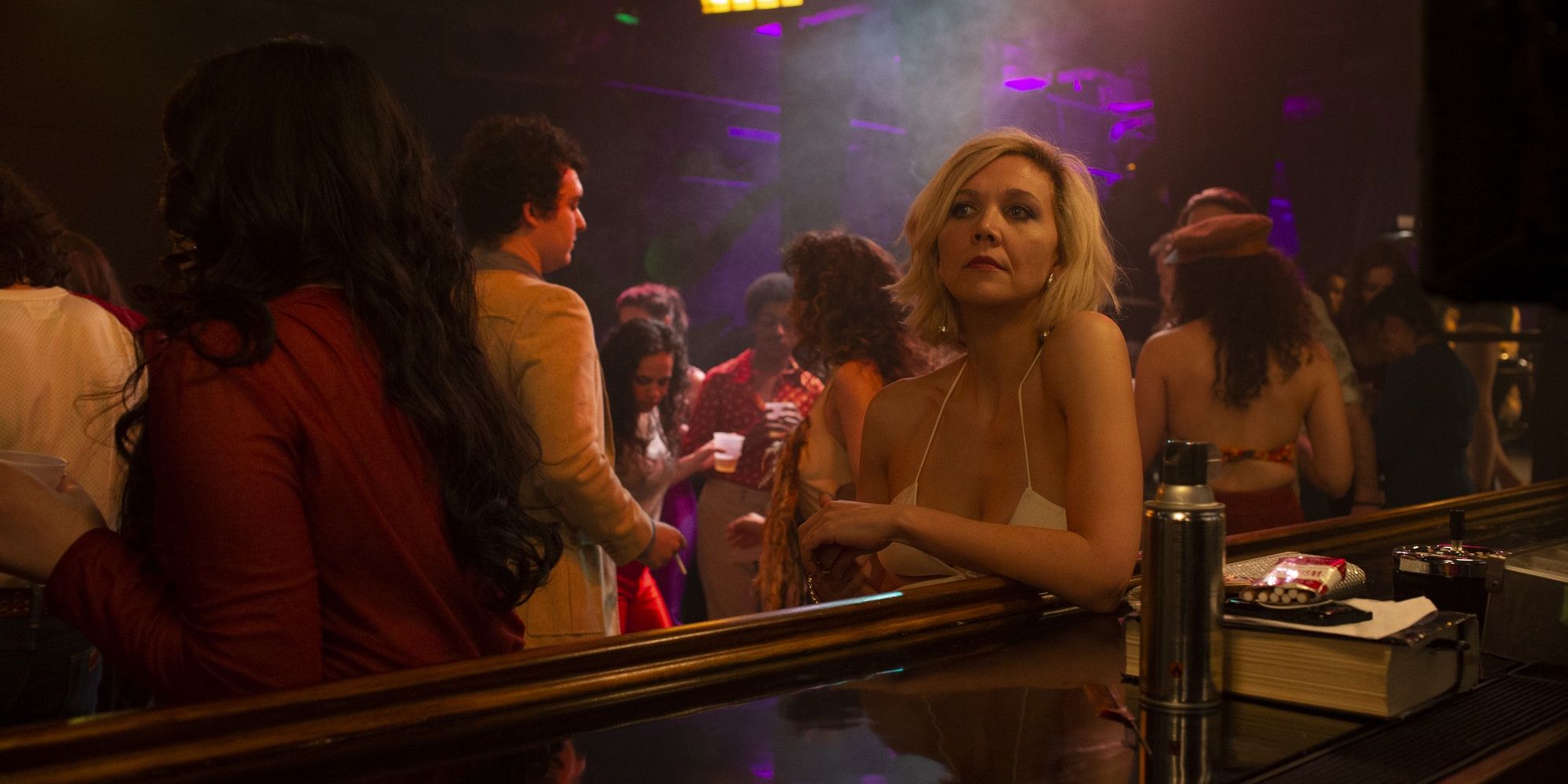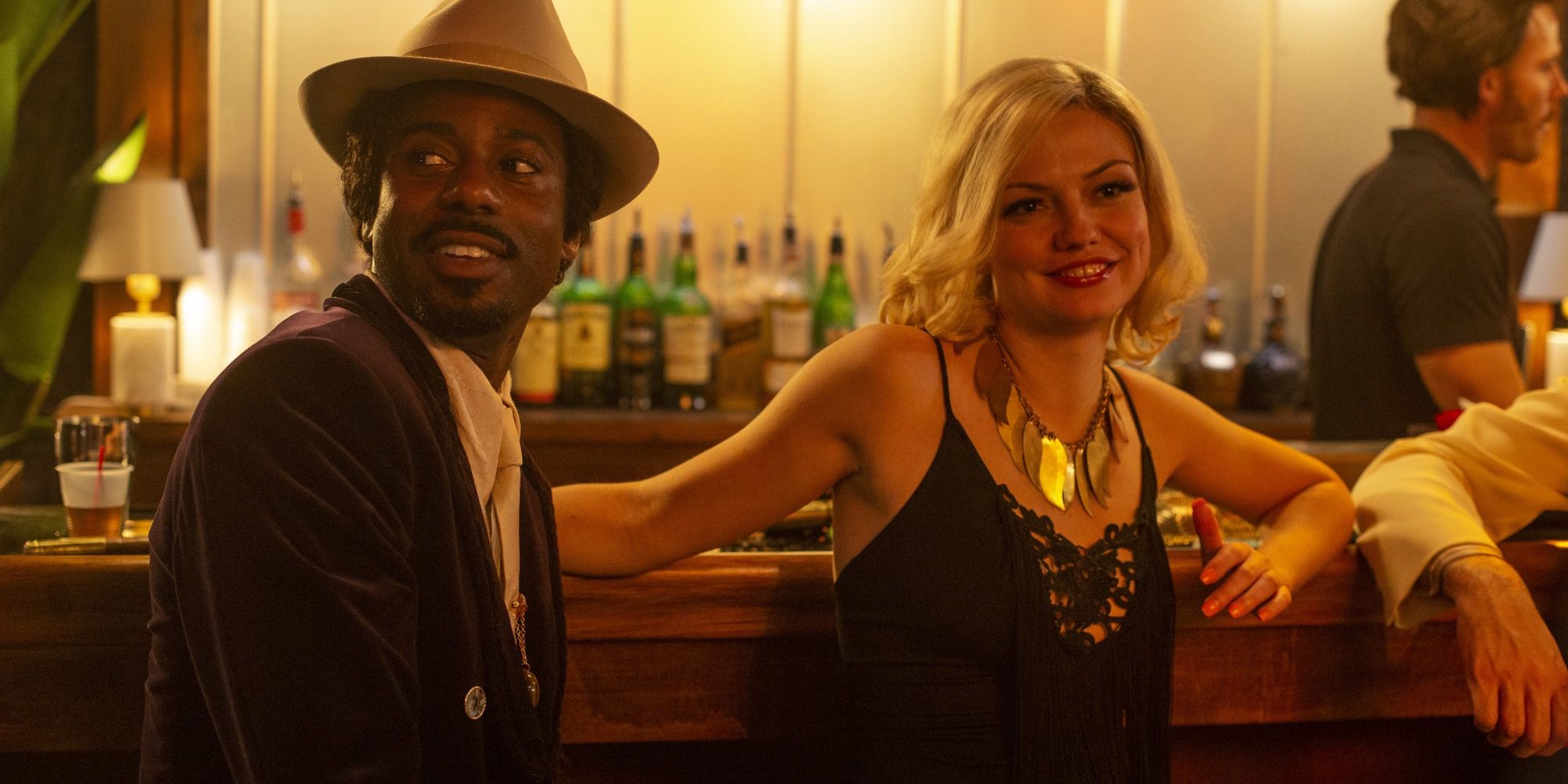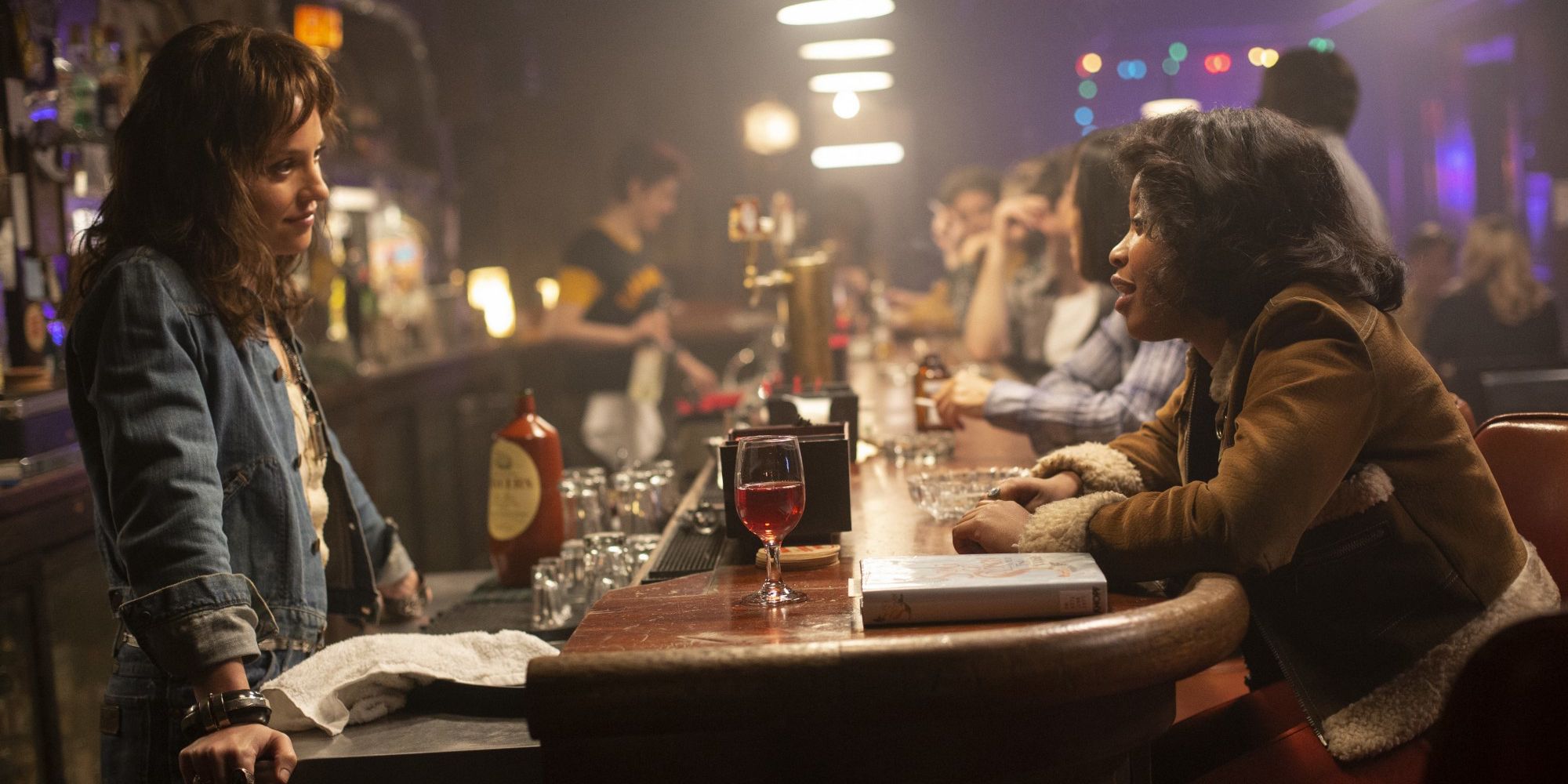
Season 1 of HBO’s The Deuce introduced its enormous ensemble cast and positioned the likes of Maggie Gyllenhaal, James Franco, Mustafa Shakir, Gary Carr, and more against the seedy side of New York City and the sex industry in the ‘70s. Co-created by David Simon and George Pelecanos, the series weaved in and out of a variety of different but tangentially related genres, being at once a crime series, a workplace drama, a period piece, and, as season 2 quickly establishes, an examination of the sexism facing women in the adult entertainment industry (and beyond), both in front of and behind the camera.
To say that The Deuce’s second season is more focused doesn’t do a disservice to the first, rather it underlines the way in which the show’s many threads are more explicitly woven into a predominant theme. At the center of this second season is Maggie Gyllenhaal’s Candy, who has begun to parlay her professional relationship with pornographer Harvey Wasserman (David Krumholtz) into more behind-the-camera work in the adult film industry. The season, then, is centered on the many obstacles she faces along the way as she begins directing her own films, but finds long standing prejudices or “norms” within the world of adult entertainment — particularly for someone still appearing in them as an actor — work in opposition to her achieving her goals.
More: It’s Always Sunny In Philadelphia Review: The Dennis Problem Gets Resolved
As dazzling and occasionally heartbreaking as Gyllenhaal’s performance was in season 1, she is operating on a completely different level this time around. Candy, as well as the other characters, and the series as a whole, benefit from the decision to make a considerable jump forward in time to 1977, putting the porn industry on the precipice of being revolutionized by the prevalence of video, and the ways in which that irrevocably altered the way the business worked. The series makes nods toward this in interesting ways throughout the first few episodes of season 2, expanding its story to cover more of New York City and Los Angeles as well, as Emily Mead’s Lori begins to acclimate to her burgeoning fame as an adult film star.

Candy, Lori, and Darlene (Dominique Fishback), are in many ways the central focus on the new season, as The Deuce examines the ways their lives have and have not changed in the intervening years, and the way their careers and personal lives are still overwhelmingly controlled by certain groups men in various positions of power. Candy’s situation makes her something of an outlier, but as the season demonstrates repeatedly, she still run into familiar situations where the power dynamic is ridiculously and unfairly skewed. It’s ingrained into every facet of the industry in which she works. And by watching characters repeatedly run headlong into this wall season 2 develops a more fascinating through-line that enhances its already well-established humanist and socially conscious narratives.
The show also expands on the criminal side of things, delving into increasingly morally nebulous territory familiar to Simon, Pelecanos, and especially writers like Richard Price (The Night Of) and Megan Abbott. This side of the sex industry concerns everyone from Gary Carr’s C.C. to Gbenga Akinnagbe’s Larry Brown to Michael Rispoli’s mob boss Rudy Pipilo and, certainly, James Franco in the dual role of Vincent and Frankie Martino.
Inasmuch as The Deuce observes the sex industry as a business and those involved in it as workers dealing with many of the same concerns as those in what may be considered “legitimate” or “conventional” industries, it takes a similar approach to the aspect of organized crime. In particular, the parts of season 2 that feature Franco’s brothers or their brother-in-law, Bobby Dwyer (Chris Bauer), are very much about running a business. Whether it’s increased competition from a rival organization or another crackdown by the NYPD, called down from the mayor’s office — represented this season by newcomer Luke Kirby as mayoral representative Gene Goldman — the ins and outs of a criminal enterprise takes on a familiar workaday aspect that will be familiar to viewers of Simon's work on The Wire.

Whether a scene or storyline is focused on Candy, Vincent, Lori, or C.C., season 2 of The Deuce has repositioned its point of view in such a way that the perspective of women is almost always in the narrative foreground. That emphasis affords characters who might otherwise be placed in a secondary position to step up and enjoy greater agency. Case in point, Abby (Margarita Levieva), who is now managing Vincent’s old bar and is segueing it into a venue for the punk scene, is also taking part in an outreach program to help the women who are working the streets. Similarly, though she’s most often working opposite Carr, one of the show’s most consistently engaging performers, each door that opens up for Lori threatens to close on C.C., and the result is a captivating shift in one of the show’s most fascinating relationships.
The Deuce season 2 delivers compelling development for an already strong show, one that makes the most of its talented ensemble by shifting perspectives and putting women at the forefront of its overarching narrative. Of all the storylines this new season is offering, though, it will likely be best remembered for Gyllenhaal’s dazzling performance.
Next: Iron Fist Season 2 Review: The Series Still Struggles To Land A Satisfying Punch
The Deuce continues next Sunday with ‘There’s an Art to This’ @10pm on HBO.
from ScreenRant - Feed https://ift.tt/2MfwjHt

0 Comments